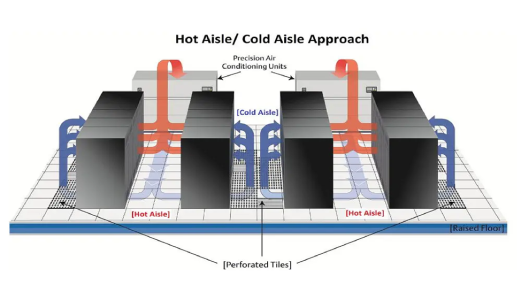
In the dynamic landscape of modern technology, the demand for efficient and precise climate control solutions in critical environments such as server rooms, data centers, laboratories, and telecommunication rooms has never been more pronounced. As advancements in IT, telecommunication, and laboratory equipment continue to evolve, the generation of substantial heat, particularly with higher-density IT configurations like Blade Servers, poses a significant challenge.
The Close Control Unit (CCU), is also recognized as a Precision Air Conditioner, Close Control Air Conditioner (CRAC), or Computer Room Air Conditioner. The pivotal role of precision cooling in server room and data center environments cannot be overstated, especially when considering the potential consequences of inadequate temperature and humidity regulation.
The Challenge of Heat Generation
The relentless pace of technological innovation has led to the production of sophisticated equipment that, in turn, generates substantial heat. This challenge is magnified by the adoption of high-density IT setups such as Blade Servers, making it imperative to implement the right type of precision cooling solutions.
Understanding Airflow Dynamics
A critical aspect of efficient server room and data center cooling lies in a comprehensive understanding of airflow requirements. Failure to address this crucial factor can result in the formation of “deadly” hot spots around mission-critical servers, leading to potential operational disruptions and equipment damage.
Precision Air Conditioning: A Tailored Solution
Precision Air Conditioning systems emerge as the cornerstone for addressing the intricate cooling needs of server rooms and data centers. These systems offer a multitude of benefits, including efficient heat removal, impeccable humidity control, enhanced airflow, superior air filtration, and increased flexibility and expandability. Furthermore, they come equipped with a range of alarms and redundancy options, ensuring a robust and fail-safe cooling infrastructure.
Types of Precision Air Conditioning Systems
Precision Air Conditioners are available in various configurations to cater to specific requirements. The classification is broadly divided based on air throw into upflow or downflow types. Additionally, they are categorized into Chilled Water (CW) type, Direct Expansion (DX) type, or a versatile Dual Fluid type combining both Chilled Water and Direct Expansion.
Chilled Water (CW) Type: Utilizing chilled water as a coolant, this type of precision air conditioner excels in maintaining optimal temperature and humidity levels.
Direct Expansion (DX) Type: Employing direct expansion for cooling, this type is known for its efficiency in swiftly and directly addressing temperature control needs.
Dual Fluid (Chilled Water + Direct Expansion) Type: Combining the benefits of both Chilled Water and Direct Expansion, this configuration offers a flexible and comprehensive cooling solution.
In conclusion, the proper selection and deployment of precision air conditioning systems are pivotal for safeguarding the integrity and performance of mission-critical equipment in server rooms and data centers. Alpscool stands at the forefront of providing cutting-edge solutions to meet these evolving needs, ensuring a climate-controlled environment that is both reliable and efficient.